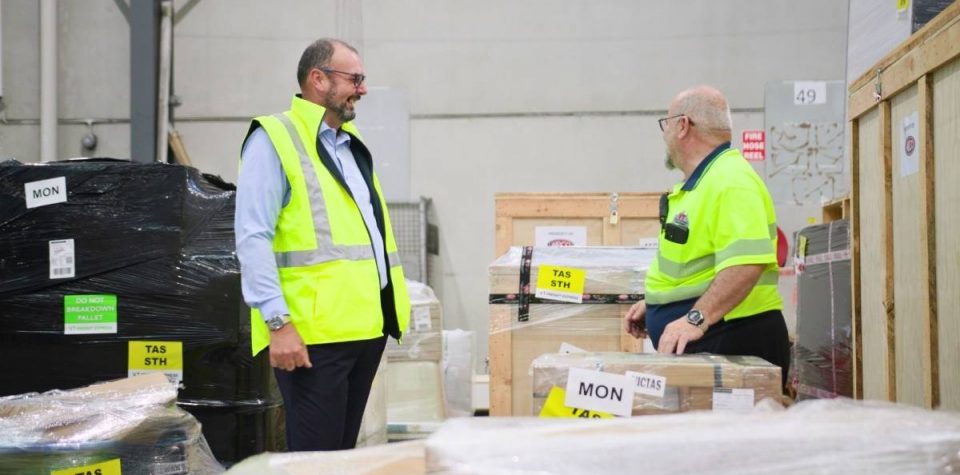Table of Contents:
- The Business Case for Efficiency in Bulk Freight(Incorrect heading level)
- The Technological Turning Point
- Digital Transformation in Bulk Freight
- Leveraging Analytics for Decision-Making
- The Role of Automation in Operations
- Achieving End-to-End Visibility
- Operational Excellence
- Route Optimization: The Next Frontier
- Balancing Human Skill and Technological Prowess
- Tailoring Strategies for Different Types of Bulk Freight
- Financial Strategies
- Identifying and Reducing Revenue Leakage
- Maximizing Value: Strategies for Increasing Average Delivery Value
- The Sustainability Imperative
- The Ideal Solution for Bulk Freight Optimization
What if there was a way to transform your bulk freight operations from a cost center into a serious competitive advantage? In our industry, where inefficiencies can make or break your bottom line, you know the stakes have never been higher. That’s why it’s crucial to find new ways to optimise your bulk freight transportation efforts as much as possible.
Bulk freight can rightly be considered the linchpin of modern supply chains. Moving such large quantities of goods across the world fuels countlesompits industries and economies. Whether we’re talking grains, minerals, chemicals, or other materials, it’s hard to deny the strategic importance of quality bulk freight transportation.
The Business Case for Efficiency in Bulk Freight
Efficiency is hardly seen as just a buzzword anymore. Instead, it’s become a genuine business imperative. Inefficiencies in your business can lead to a cascade of issues, from increased costs to delayed deliveries and lost opportunities. The challenges are severe, from volatile costs and regulatory hurdles to outdated manual workflows. In other words, they’re a hotbed for errors.
The Technological Turning Point
There can be little doubt that we’ve arrived at a watershed moment in the logistics industry. Technology continues its evolution, offering a suite of hardware and software solutions that help us tackle many challenges head-on. From data analytics to automations, these new tools are helping us achieve unprecedented efficiency in bulk freight that are easily within our reach.
If your company can use these tools to optimise your bulk freight operations, you’ll stand to gain a competitive edge in today’s rapidly moving logistics landscape. Let’s explore some of the key strategies for achieving this kind of optimisation.
Digital Transformation in Bulk Freight
Leveraging Analytics for Decision-Making
You know that our industry is full of thin margins and fierce competition. That makes decisions based on pure gut feelings a seriously risky endeavor. Data analytics have become a game-changer for logistics, enabling businesses to make highly informed decisions that are both timely and impactful. Whether you’re choosing the most cost-effective routes or the ideal type of freight for a specific journey, data helps to provide the critical insights you need for strategic planning.
The Role of Automation in Operations
Manual processes have always been plagued by human error and inefficiencies. Fortunately, they’re increasingly being replaced by high quality automation systems. Automation enables businesses to have their tasks performed with speed and precision, freeing up the most valuable human resources. Whether it’s invoicing or real-time tracking, automated processes allow businesses to focus on key areas of strategic growth rather than getting bogged down in day-to-day operations.
Achieving End-to-End Visibility
One of the biggest challenges in bulk freight is knowing exactly where your goods are located at any given moment. With end-to-end visibility, you’ll have real-time tracking information that offers a level of transparency that’s not only reassuring but operationally advantageous. Such levels of visibility enable better planning, timely interventions, and far more responsive approaches to the myriad issues that can arise during transit.

Operational Excellence
Route Optimisation: The Next Frontier
After you lay the groundwork with analytics and automation, the next logical step is conquering route optimisation. Advanced routing algorithms consider a wide range of variables – traffic conditions, weather, load types, and more – to ensure that freight takes the most efficient path possible. This won’t only save your business a ton of time – it functions as a strategy to significantly reduce fuel costs and minimize environmental impacts.
Balancing Human Skill and Technological Prowess
Technology certainly offers some incredible advantages, but the human element in your business is still irreplaceable. Features like real-time tracking and performance metrics aren’t just for optimising routes, they’re for helping drivers adhere to safety and efficiency standards. You’ll gain a more harmonious blend of human skill and technological capacity which work in tandem to enhance one another.
Tailoring Strategies for Different Types of Bulk Freight
The complexities of bulk freight are directly related to the nature of the goods you transport each day. With different types of freight, you can expect different handling and transportation strategies. Whether it’s grains that need specific temperature controls or chemicals that require expert handling solutions, your operational approaches must be tailored to meet the unique needs of each freight type.
Financial Strategies
Identifying and Reducing Revenue Leakage
Operational efficiency is undoubtedly crucial, but maintaining a strong financial acumen can’t be overlooked. Revenue leakage – those hidden, sometimes unnoticed costs – can quietly eat away at your bottom line. Detailed analytics can go far beyond operations and into the realm of finances, offering you a comprehensive cost breakdown. This kind of financial transparency means you’ll be able to identify revenue leakage and take quick corrective action to ensure every dollar you spend is worthwhile.
Maximizing Value: Strategies for Increasing Average Delivery Value
Financial savvy isn’t all about cutting costs, either. It’s about further enhancing your revenue. Logistics software features like load consolidation and dynamic pricing don’t only maximize the value of every delivery. They also improve your overall operational efficiency. With strategic management for both cost and revenue sides of the equation, your company can set the stage for a more profitable and sustainable bulk freight transportation operation.
The Sustainability Imperative
As we’ve navigated through the many complexities of bulk freight, you’ve probably surmised that it’s not just about cutting costs and speeding up your deliveries – it’s also about constructing a more sustainable business model. Efficient routing and load optimisation serve a dual purpose – they’re able to reduce your operational expenses while also minimizes your environmental impact. The world today practically demands that all businesses align with sustainability goals because it’s not just ethical. It’s good business.
The Ideal Solution for Bulk Freight Optimisation
There are countless challenges in bulk freight logistics and, fortunately, there are numerous new solutions your business can take advantage of. From leveraging analytics and automation to achieving both operational and financial efficiency, logistics software solutions offer fairly comprehensive strategies. But if you’re unsure how you can bring all these elements together in a cohesive and cost effective way, TransVirtual is the answer. Our robust analytics and automation capabilities alongside our focus on operational and financial efficiency make our software solutions the ideal choice for your company as you aim for excellence in bulk freight transportation.
The future of bulk freight is here – it’s digital, efficient, and sustainable. There’s no reason you should let outdated processes hold you back any longer. It’s time you took the first step toward optimising your bulk freight operations by exploring what TransVirtual’s transportation management software has to offer. After all, when the world is constantly moving, standing still is not an option.



